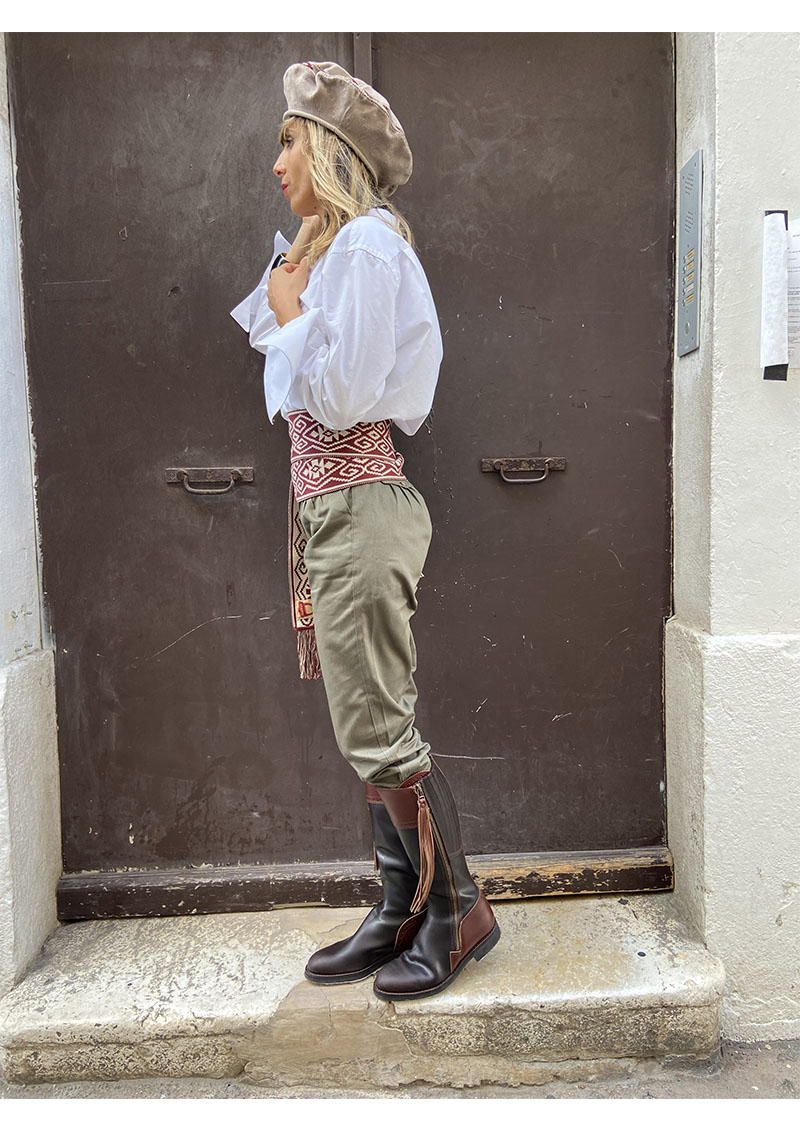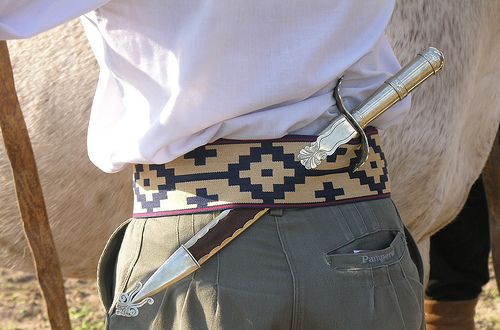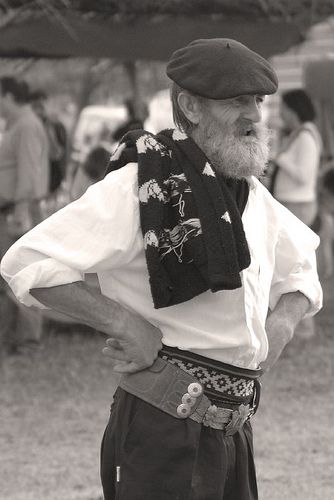









The authentic gaucho knitted belt.
Made in Buenos Aires, Argentina.
Width 8 cms.
It is available in two colours:
- Red
- Blue

In the South American prairies, the gauchos are the lords of the land. Kings of the Argentinean pampas, they are guardians of the herds, as well as guardians of the fields. Probably of Quechua origin, gaucho means " lonesome ", " wanderer ", " peasant " or " lover ", in an obvious synthesis which says well the love of this rider for his lands, but also this essential quest for freedom. As a true Argentine cowboy, he crosses the infinite spaces of the pampas in search of his herds as well as his independence. The gaucho chooses an austere, isolated life where nights under the stars are frequent, and the guitar is his best partner. It is not uncommon, however, for the gaucho to settle in a small rancho, settle down and start a family. The gaucho remains a key figure in Argentine culture, especially since the 19th century and the wars of independence. Ally of the armies of liberation, he is still considered today as an icon of courage and honor.
The gaucho wardrobe is part of this mythical heritage of the brave and free cowboy. At deTOUJOURS, we seek the gaucha outfit at its source, at our historical manufacturer, established since always in Buenos Aires.
 Let's be honest, a real good pair of trousers, like our mythical gaucho trousers, does not need a belt. Thought and designed for a daily use, that of the gaucho riding the pampa during whole days, these trousers are a condensed technicality that we invite you to discover, adopt and divert. This thick woven waist belt, to be tied around the waist, is not only decorative. It is used, in fact, to slip in precious objects, such as a knife with infinite uses. Adjustable as desired, it becomes an additional pocket, removable, or to safely insert a knife into its tightly woven mesh.
Let's be honest, a real good pair of trousers, like our mythical gaucho trousers, does not need a belt. Thought and designed for a daily use, that of the gaucho riding the pampa during whole days, these trousers are a condensed technicality that we invite you to discover, adopt and divert. This thick woven waist belt, to be tied around the waist, is not only decorative. It is used, in fact, to slip in precious objects, such as a knife with infinite uses. Adjustable as desired, it becomes an additional pocket, removable, or to safely insert a knife into its tightly woven mesh.
A practical belt, but also a piece of ceremonial jewelry, it is directly inherited from the Mapuche tradition. Pre-Hispanic indigenous people, located in Argentina and Chile, the Mapuche are, among other things, famous for their weaving talent. Archaeologists have found particularly complex weaving patterns from the 1300s, notably on fabrics made from llama wool, which they bred. Later, sheep replaced llama wool. Whatever the type of wool used, the transmission of this unique know-how is based on imitation of movement, in the household, from mother to daughter, from grandmother to granddaughter. Doing and learning become one.
This ancestral tradition continues to this day, and is the richness of the pre-Hispanic heritage, whose weavings are exported to Europe, notably through polo. The polo belts, partly hijacked by Ralph Lauren and mixed with leather, directly take up the Mapuche patterns, whose geometry is a language: the motif of the world is joined to the motif of the family, the child, nature, the moon, and so many others.
At de Toujours, we draw our source from those who have always created it. Our manufacturers weave this traditional belt in Buenos Aires, in their historic workshops.
 .
. 

The authentic gaucho knitted belt.
Made in Buenos Aires, Argentina.
Width 8 cms.
It is available in two colours:
- Red
- Blue
De Toujours invites you to discover clothes and accessories at the source of the style, original pieces that fashion has always diverted.
© DE TOUJOURS 2025